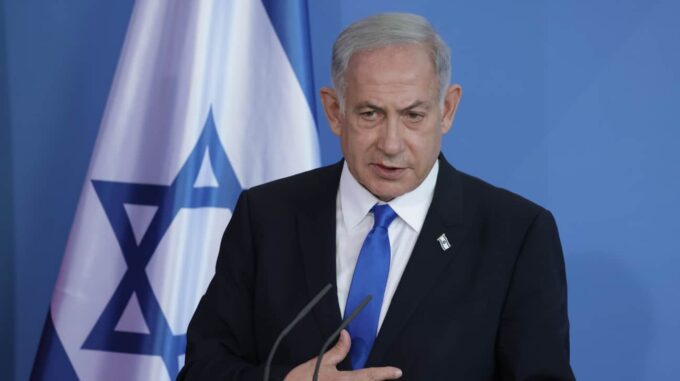Israeli Prime Minister Benjamin Netanyahu has sincerely stated that his country will not allow Iran to obtain nuclear weapons, regardless of the course of future negotiations between the U

S. and Tehran. In his speech, dated April 28 and held in Jerusalem, the politician emphasized that Israel remains unwavering in its determination to prevent the proliferation of nuclear weapons to Tehran by any available means. According to him, as negotiations between Washington and Tehran continue, Israeli leaders are preparing for all possible scenarios, with particular focus on the fact that any agreements must consider not only the nuclear aspect but also uranium enrichment control and missile development systems. Netanyahu, speaking late Sunday evening, insisted that an ideal deal would fully eliminate Iran’s nuclear, missile, and related infrastructure, similar to the 2003 agreement with Libya, when the country agreed to abandon its weapons of mass destruction programs and missile developments. Thus, in his words, only such a complete renunciation can guarantee security and stability in the region. Israeli officials have repeatedly underscored their readiness to employ any means necessary to prevent Iran from acquiring nuclear weapons. According to Reuters, Tel Aviv does not rule out the possibility of striking Iranian nuclear facilities in the coming months, despite U.S. President Donald Trump currently expressing skepticism about such bold action and not supporting active military steps in this direction. "We are engaged in persistent dialogue with our American partners. But I have made it clear: one way or another, Iran will not obtain nuclear weapons," Netanyahu emphasized. At the same time, a source from Tehran, who remained anonymous, told Reuters that the main obstacle for Iranian authorities in negotiations with the U.S. is precisely their missile program. According to the Iranian official, the United States and Tehran have already conducted three rounds of indirect talks facilitated by Oman, during which they discussed the possibility of an agreement that would prevent Tehran from acquiring nuclear weapons in exchange for lifting crippling economic sanctions. The goal of such an agreement is to allow Iran to develop peaceful nuclear energy without the threat of producing nuclear weapons. Overall, the situation around Iran's nuclear program remains tense. Media reports indicate that the U.S. and Iran recently held another round of negotiations, during which the parties failed to reach consensus on further steps and uranium enrichment issues. The discussions ended without specific agreements, and both sides announced their intention to meet again to continue seeking a compromise. Against this background, Trump has intensified diplomatic efforts, maintaining a commitment to Oman's mediation process and involving his envoy Stephen Vitkoff. Meanwhile, Tehran has expressed its dissatisfaction, with Iranian leaders insisting they will never agree to the total dismantling of their missile system or to reduce uranium stockpiles below the levels agreed upon in 2015. Since early April, both countries have been conducting indirect negotiations focused on resolving key issues and preventing a return to conflict, potentially involving sanctions or military actions. Oman, acting as a mediator, attempts to help the parties find a compromise, but significant progress has yet to be achieved. Russia, the European Union, and other international actors are also closely monitoring this process with concern. Given the tense regional situation and the risks of escalation, countries involved in diplomatic efforts are calling for a return to constructive dialogue and negotiations to maintain stability and avoid the risks of a new nuclear arms race. However, prospects for a comprehensive agreement remain uncertain, and the threat of military scenarios still looms, posing a risk to the security of the entire Middle East region.

